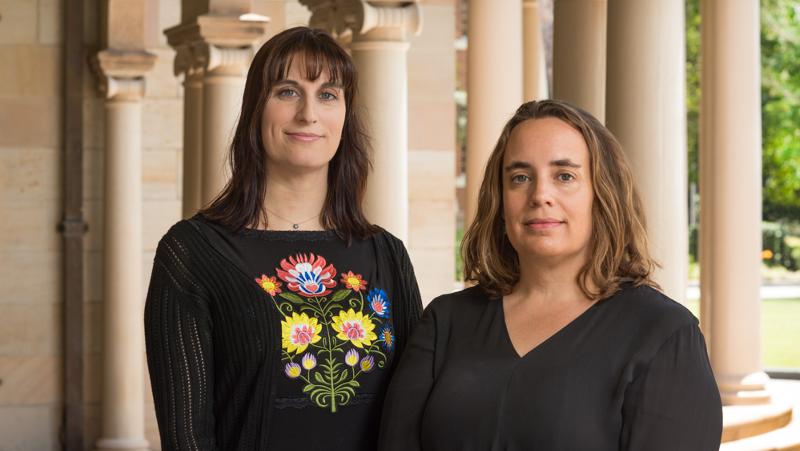
DV survivors can be abused, monitored and controlled through a host of techniques and digital technologies, says QUT Associate Professor Molly Dragiewicz.
“Surveillance, identity theft and intrusion are increasingly emerging as challenges for victims, advocates and support services,” she said.
Professor Molly Dragiewicz and Dr Bridget Harris, criminologists in QUT’s School of Justice, are embarking on a study of domestic violence survivors' experiences of intrusion, surveillance and identity theft via communication technology.
Professor Dragiewicz said technology-facilitated abuse could take many forms.
“There has been little research on the ways DV perpetrators use technology to intrude on victims’ lives in Australia, but overseas studies have identified cases of abusers using their victims’ credit cards to run up debt and logging into accounts and changing information such as usernames and passwords.
“Other studies have documented women receiving phone calls from someone impersonating a police officer who tries to intimidate them and dissuade them from make a formal complaint about the abuse,” Professor Dragiewicz said.
“Victims are forced to spend a lot of time and effort to regain control of their devices and accounts but can have trouble getting help to resolve these issues.
“The problem is compounded by the fact that many online platforms cross jurisdictional boundaries, making options for responding more complicated.”
Dr Harris said the study would provide an Australian evidence base to inform practice around this type of abuse.
“As our everyday lives migrate online, we can expect useful tools like GPS-linked mobile apps, the Internet of Things, and online payment systems to pose unintended and distinct security and privacy risks for domestic violence survivors,” Dr Harris said.
“DV survivors need access to safe and secure information communication services to not only engage socially but to seek help and information.
“This study will gather information from survivors, community legal centres, and domestic violence service providers to document the challenges of dealing with technology-facilitated abuse, including in rural, regional and remote areas where online resources are especially important.
“Our findings can be used to advocate for improvements to law and policy that will make communication services more secure for all consumers.”
The study is funded by the Australian Communications Consumer Action Network (ACCAN) in partnership with Women's Legal Service Queensland, Women's Legal Service New South Wales, and Dr Michael Salter from Western Sydney University and Dr Delanie Woodlock.
Professor Dragiewicz is a member of QUT’s Crime and Justice Research Centre and the Digital Media Research Centre. She is an internationally recognised expert on domestic violence and recently published Abusive Endings (2017) with Walter DeKeseredy and Martin Schwartz.
Dr Harris is a member of QUT’s Crime and Justice Research Centre and author of Locating crime in context and place: Perspectives on regional, rural and remote Australia (2016) with Alistair Harkness and David Baker.
QUT Media contacts: Niki Widdowson, 07 3138 2999, n.widdowson@qut.edu.au
After hours: Rose Trapnell, 0407 585 901, media@qut.edu.au.




